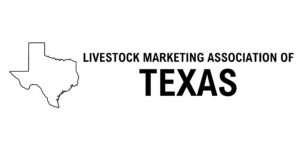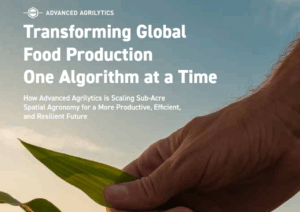ZimmCast 746 – ZimmComm Plans For Future
 Hello and welcome to the ZimmCast.
Hello and welcome to the ZimmCast.
The ZimmComm Team is enjoying some time in paradise right near the Gulf of America. The weather has been great and we’ve had enough rain so that everything is green and growing.
In this episode Cindy and I discuss the changes we’re making to ZimmComm. We recently announced that we are going to retire from business travel starting Jan. 1, 2026. That has been a very big part of the work we pioneered along with the use of social media in agricultural marketing.
But we’ve got plenty to do as we continue to distribute news releases with our AgNewsWire service. In fact, we started out with the idea of including audio files in news releases for our clients. We called them Talking News Releases and because of our background in farm radio we knew the frustration of not being able to get an interview or sound bite. When you want to have an audio interview included in your news release we will produce it and publish it with no extra cost. We’ll work with you on the interview and can also add your own audio file if you would like, including logos, photos or other images. Here is an example of our latest news release for AgTech PR for their client, PowerPollen, that includes an interview.
To have us distribute your release to our contact list all you have to do is use your credit card on the AgNewsWire form here and then just email your release and any multi-media content to include.
In addition to news releases we will continue to produce podcast like this one, The ZimmCast, as well as The Ethanol Report and the Daugherty Water For Food Podcast. If you would like to start a podcast just give us a call.
We’ve still got several trips planned this year including these in July. Tech Hub Live in Des Moines, IA, Southern Peanut Growers Conference in Panama City, FL and Ag Media Summit in Rogers, AK.
So, keep ZimmComm’s in your plans. And that’s the ZimmCast for now.
Listen to the episode here:
ZimmCast 746 - ZimmComm Plans for Future (24:38)
That’s the ZimmCast for now. Please let us know if you have ideas for a future podcast. Just email Chuck at chuck@zimmcomm.biz.
We hope you enjoyed it and thank you for listening.
Subscribe to the ZimmCast in:
Livestock Markets and Dealers Support NWS Prevention Efforts
 Livestock markets and dealers are in strong support of recent efforts to stop the spread of the New World Screwworm (NWS) into the U.S. NWS has been recently detected in remote farms with minimal cattle movement as far north as Oaxaca and Veracruz, about 700 miles away from the U.S. border.
Livestock markets and dealers are in strong support of recent efforts to stop the spread of the New World Screwworm (NWS) into the U.S. NWS has been recently detected in remote farms with minimal cattle movement as far north as Oaxaca and Veracruz, about 700 miles away from the U.S. border.
This week, the Strengthening Tactics to Obstruct the Population of Screwworms (STOP Screwworms) Act was introduced in both the House and Senate to authorize funds for and direct the U.S. Department of Agriculture (USDA) to begin construction on a new sterile fly production facility to combat the growing NWS outbreak.
“We are grateful to U.S. Senators John Cornyn (R-TX), Ted Cruz (R-TX), Ben Ray Luján (D-NM), Cindy Hyde-Smith (R-MS), Martin Heinrich (D-NM), and U.S. Representative Tony Gonzales (R-TX) for introducing this legislation,” said Bryan Forester, Chair of the American Livestock Markets and Dealers Association (ALMDA). Forester noted, “The sterile fly production facility and related appropriations authorized by this legislation is critical to protect the U.S. livestock industry.”
 Livestock marketers and dealers also support action taken by Secretary of Agriculture Brooke Rollins on Sunday to temporarily suspend live animal imports at ports of entry along the Mexican border in response to the emerging threat of NWS.
Livestock marketers and dealers also support action taken by Secretary of Agriculture Brooke Rollins on Sunday to temporarily suspend live animal imports at ports of entry along the Mexican border in response to the emerging threat of NWS.
“While we acknowledge the temporary market challenges this decision may create, we stand behind the efforts of USDA and state animal health officials to safeguard domestic livestock production,” said Kenny Mingus, President of the Livestock Marketing Association of Texas (LMAT). Mingus added, “If halting imports is necessary to protect the U.S. livestock industry, we fully support this action.”
ALMDA and LMAT represent the majority of Texas livestock markets and dealers which provide marketing channels for cattle, sheep, goats, horses, and other species which could be impacted by NWS. Both organizations have supported efforts to fund sterile fly production and work within state and national coalitions to educate others on NWS impacts and will continue to work closely with animal health officials for the health and security of the livestock industry.
Precision Ag News 5/14
Animal Ag News 5/13
Industry Ag News 5/9
Precision Ag News 5/8
Advanced Agrilytics White Paper Focused on Transforming Global Food Production
 Precision agronomic solutions provider Advanced Agrilytics has published a new white paper titled “Transforming Global Food Production One Algorithm at a Time,” underscoring the company’s mission to revolutionize food production and agricultural sustainability with its patented sub-acre analysis technology.
Precision agronomic solutions provider Advanced Agrilytics has published a new white paper titled “Transforming Global Food Production One Algorithm at a Time,” underscoring the company’s mission to revolutionize food production and agricultural sustainability with its patented sub-acre analysis technology.
The white paper introduces TerraFraming™, Advanced Agrilytics’ proprietary sub-acre analysis platform that redefines traditional agronomy. Instead of treating fields as if every acre were the same, TerraFraming™ dissects them into microenvironments, layering data on soil chemistry, water movement, nutrient distribution, organic matter levels, topography and other datasets to deliver custom agronomic prescriptions for everything from nutrient management to seeding strategies, delivered in a “ready-to-use” format.
Key outcomes from this methodology include:
– >27% increase in corn yields per acre
– >15% reduction in nitrogen use per bushel of corn produced
– $46/A in soybean gains by year four, rising to $61/A by year 10
– $72/A in corn gains by year four, growing to $100/A by year 10
– 21% reduction in N₂O emissions in high-risk nitrogen loss areas
Advanced Agrilytics CEO Kenny Avery says as the global population surges toward a projected 10 billion people by 2050, the need for efficient, sustainable agricultural systems lies in a radically new approach to crop management – predictive agronomy.
“This white paper isn’t just a statement of intent—it’s a roadmap to how we help farmers grow more with less,” said Avery. “From Iowa to Indonesia, we believe our technology can transform outcomes for growers everywhere.”
PowerPollen Patents Pollen Storage Methodology
 Agtech company PowerPollen has received its latest patent for the groundbreaking process of using solid particulates blended with fresh pollen grains to protect pollen’s viability during storage. PowerPollen’s IP strategy has been a key part of protecting their innovation while rapidly scaling to support global seed companies and farmers since the company was founded in 2015.
Agtech company PowerPollen has received its latest patent for the groundbreaking process of using solid particulates blended with fresh pollen grains to protect pollen’s viability during storage. PowerPollen’s IP strategy has been a key part of protecting their innovation while rapidly scaling to support global seed companies and farmers since the company was founded in 2015.
PowerPollen collects, preserves and applies pollen to corn, wheat, rice, and other important crops, eliminating the previously required dependency on natural pollen shedding to pollinate female plants. This process enables the ability to more reliably and cost-effectively produce high-quality seed farmers plant for crops. Corn, rice, wheat and barley rank as the top four grain crops grown globally. This patent is part of a one-of-a-kind portfolio of intellectual property PowerPollen has secured in their pursuit to increase the productivity, profitability and sustainability of modern agricultural practices.
 “Our initial key discoveries more than a decade ago – and our ongoing innovation since – has enabled PowerPollen to scale our unique pollination tech stack of collection, storage and application to commercial levels in agriculture—helping farmers and seed production partners increase yields without increasing other inputs,” said Jason Cope, Chief Intellectual Property Officer, PowerPollen. “Our discoveries changed the previously held notion that row crop pollen was not capable of being stored for any duration. The ripple effect can clearly be seen by the consistent yield improvements in fields that PowerPollen has treated with stored pollen.”
“Our initial key discoveries more than a decade ago – and our ongoing innovation since – has enabled PowerPollen to scale our unique pollination tech stack of collection, storage and application to commercial levels in agriculture—helping farmers and seed production partners increase yields without increasing other inputs,” said Jason Cope, Chief Intellectual Property Officer, PowerPollen. “Our discoveries changed the previously held notion that row crop pollen was not capable of being stored for any duration. The ripple effect can clearly be seen by the consistent yield improvements in fields that PowerPollen has treated with stored pollen.”
PowerPollen holds the most patents for pollination-based technology, crop application and related innovations, based on over a decade of intellectual data and discovery and more than eight years of commercial field data and ongoing innovation and its IP strategy has been critical to develop the best technology advancements for customers.
Learn more about PowerPollen and its patented technology in this interview with co-founder and Chief Intellectual Property Officer Jason Cope.
Interview with Jason Cope, Chief Intellectual Property Officer, PowerPollen 9:43


